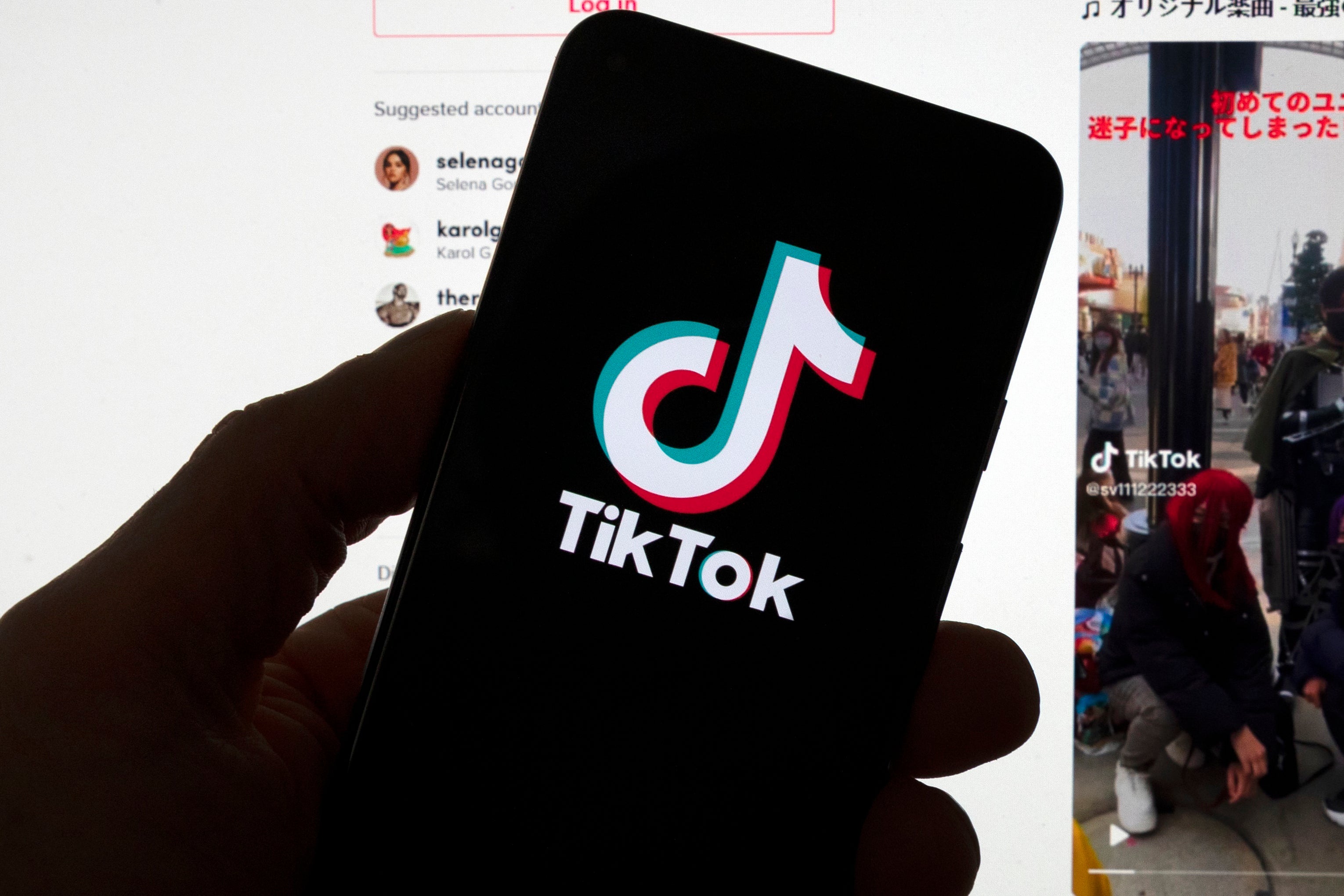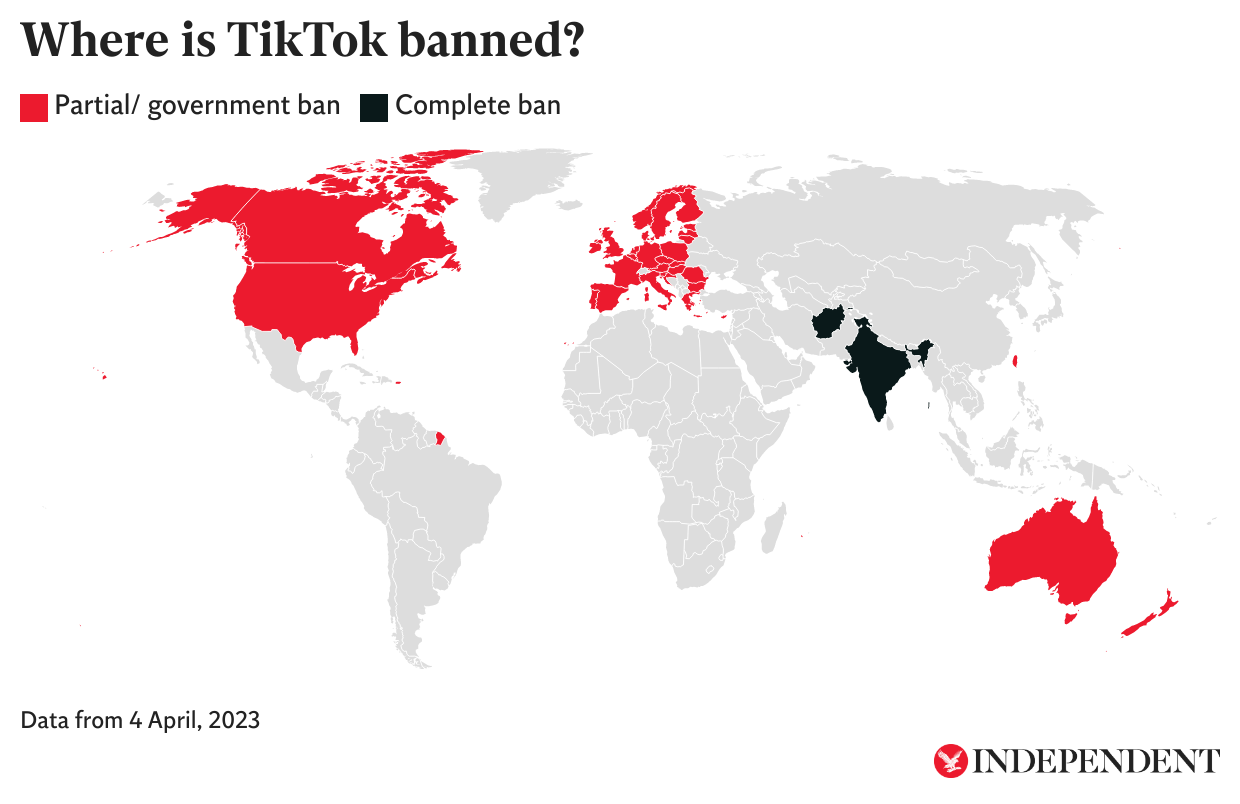Australia becomes latest country to ban TikTok on government devices
Chinese-owned app claims move is ‘driven by politics, not by fact’

Your support helps us to tell the story
From reproductive rights to climate change to Big Tech, The Independent is on the ground when the story is developing. Whether it's investigating the financials of Elon Musk's pro-Trump PAC or producing our latest documentary, 'The A Word', which shines a light on the American women fighting for reproductive rights, we know how important it is to parse out the facts from the messaging.
At such a critical moment in US history, we need reporters on the ground. Your donation allows us to keep sending journalists to speak to both sides of the story.
The Independent is trusted by Americans across the entire political spectrum. And unlike many other quality news outlets, we choose not to lock Americans out of our reporting and analysis with paywalls. We believe quality journalism should be available to everyone, paid for by those who can afford it.
Your support makes all the difference.Australia has become the latest country to ban TikTok from government devices due to security concerns surrounding the Chinese-owned app.
It follows similar bans from the US, Canada, New Zealand, Norway, the EU and UK, while India and Afghanistan have enforced complete bans of the viral video app
The ban comes amid growing worries that China could use the company, owned by Beijing-based ByteDance, to harvest users’ data to advance its political agenda, undermining Western security interests.
It also risks renewing diplomatic tension between Australia and its largest trading partner after things eased somewhat since Prime Minister Anthony Albanese took office in May at the head of a Labor government.
TikTok said it was extremely disappointed by Australia’s decision, calling it “driven by politics, not by fact”.
The ban will come into effect “as soon as practicable”, Attorney-General Mark Dreyfus said in a statement, adding that exemptions would only be granted on a case-by-case basis and with appropriate security measures in place.
With Australia’s ban, all members of the so-called Five Eyes intelligence-sharing network – which consists of Australia, Canada, the United States, Britain and New Zealand – have banned the app from government devices.

TikTok CEO Shou Zi Chew, in testimony before the US Congress last month, repeatedly denied that the app shares data or has connections with the Chinese Communist Party.
TikTok’s Australia and New Zealand General Manager Lee Hunter said TikTok should not be singled out.
“There is no evidence to suggest that TikTok is in any way a security risk to Australians and should not be treated differently to other social media platforms,” Hunter said in a statement.
The Australian newspaper late on Monday reported Albanese had agreed to the ban after a review by the Home Affairs department.
Dreyfus confirmed the federal government had recently received a “Review into Foreign Interference through Social Media Applications” report and that its recommendations remained under consideration.
The ban comes on the day Australian and Chinese officials held talks in Beijing in a bid to normalise trade as the World Trade Organization prepares to release findings into an Australian complaint on barley tariffs.
“Things are going well, but of course, it’ll take some time to turn this ship around,” Trade Minister Don Farrell told Sky News, referring to prospects for improving trade relations.
In 2018, Australia banned China’s Huawei from providing equipment during the rollout of its 5G network, riling China. Ties soured further after Canberra called for an independent investigation into the origin of Covid-19.
China responded by imposing tariffs on Australian commodities.
Australian lawmakers can still use TikTok on personal phones but some, including federal Government Services Minister Bill Shorten and Victoria state Premier Daniel Andrews, have decided to delete their accounts.
While TikTok comes under mounting pressure over the potential Chinese influence over the platform, it also faces criticism over its influence on children.
TikTok has said the administration of President Joe Biden demanded its Chinese owners divest their stakes or face a potential US ban.
A bipartisan Senate bill known as the RESTRICT Act would give the White House new powers to ban apps and other technologies coming from China if passed.
Additional reporting from agencies.


Join our commenting forum
Join thought-provoking conversations, follow other Independent readers and see their replies
Comments